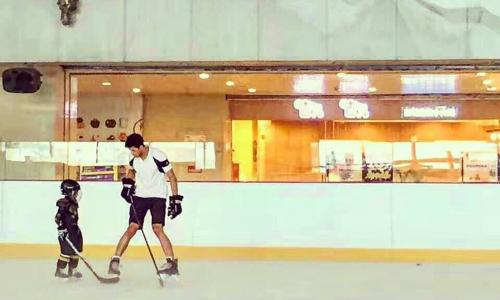
Though I'm a big hockey fan, I rarely write about the sport. Today though, I'm feeling inspired. Full disclosure on what you're about to read: I'm a huge Edmonton Oilers fan.
Last night, the hockey world bore witness to a memorable goal celebration by the Oilers' rookie forward, Nail Yakupov. With 4.7 seconds to go in a game that seemed destined to end with a 1-0 Los Angeles Kings victory, and in which the Oilers were subjected to a litany of terrible penalty calls (really - it was farcical. Look at the penalty summary here.) and a questionably disallowed goal with about a minute left, Yakupov batted the puck out of mid-air and into the Kings' net, tying the game with seconds to play and sending it to overtime and an eventual Oilers win. What followed can only be described as pure, unadulterated joy from the goal scorer:
Not surprisingly, it was only a matter of time before controversy erupted, with many feeling Yakupov's celebration was over the top - that it was unprofessional, that he should have toned down his excitement, "acted like he's done it before," and generally restrained from such an obvious display of his emotions (I can only imagine what Don Cherry will have to say about it).
However, it seems that most hockey fans are okay with the it - 70% of fans say they liked the celebration in a tsn.ca poll.
I'd like to hope that the larger reason why fans are more accepting of young Yakupov's jubilation is that we've progressed as a society in our view towards emotions, and more specifically, the display of strong emotions. That might be wishful thinking, but let me elaborate.
There are a few North American contexts in which the outward display of strong emotions hasn't traditionally been viewed positively. One of those is the sport of hockey, with it's "old boys' club" mentality. Another is the world of work. Of course, in Yakupov's case, these are one and the same, but for most people the similarities are more figurative.
In Canada at least, hockey is a cultural institution. As such, it reflects, influences, and is influenced by, the culture in which it is embedded. There are some intrinsic ideals in hockey that I'd like to think reflect positively on Canadian culture (at least, what we like to think of as Canadian culture): hard work, fairness, team play, and so on. Of course, there are others that don't really make sense at best, and contribute to unhealthy, psychologically destructive patterns at worst.
The suppression, repression, and occasional outright denial of emotional states is one of those ideals.
Trust me, as a trained counsellor and psychotherapist, I can tell you without any hesitation: when it comes to strong emotions, repression is almost without question A BAD THING. Like, psychological disorders bad. Like, school shooting bad.
You might be thinking, well - in hockey, players express emotions all the time - look at how angry they get! And you'd be right - anger is a very accepted emotion not just in hockey, but in most sports. It's accepted because, in addition to conforming to a stereotypical masculine ideal, anger is extremely motivating and can therefore be quite useful in a competitive environment. But outside of anger, and occasionally sadness, emotional displays in hockey are usually frowned upon, and viewed as unprofessional. It's not hard to see that this same way of limiting and repressing emotions is similarly prevalent in many professional workplace environments.
But does it make sense to equate the display of emotions with unprofessionalism? Why does being a professional have to preclude showing emotions at work? And what harmful effects might this be causing?
We are emotional creatures - fundamentally hard-wired to process information about our environment using emotions before even beginning to think logically. It's an innate quality that's allowed us to survive, evolve, and thrive where we surely wouldn't have otherwise. Somewhere along the way though, emotions got a bad rap. Sure, there are lots of situations - especially in a work-related context - where emotions can get in the way of logical, rational decision making. Yet it strikes me that that line of thinking has gone a bit too far.
When most people think about emotions and the work place, the fact that depression takes such a toll on the economy via leaves from work often comes up, and rightly so. But right now, I'm thinking more about more positive emotions. So, I'd like to pose a question.
When’s the Last Time You Expressed Joy at Work?
I mean, really expressed it? Like, had to get up our of your chair/office and actually tell someone how excited you were? Maybe you jumped up and down a few times?
Unfortunately, the answer for most - including me - is "a long time ago." And I think there's something profoundly unhealthy about that.
For Nail Yakupov at least, the answer is "last night."















